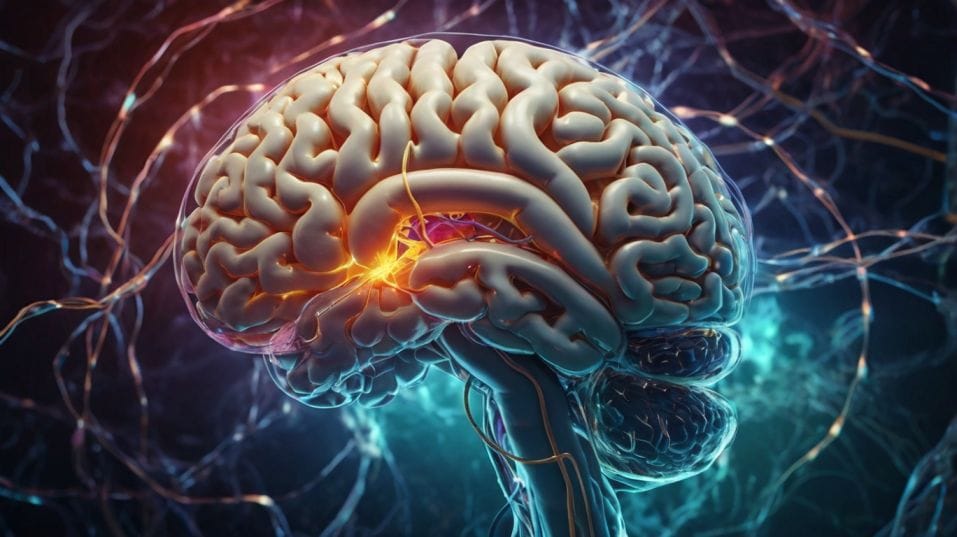The Brain-Gut Connection: How Sleep Affects Digestion
Discover how better sleep resets your gut, boosts digestion, and helps you feel lighter, clearer, and more energized—starting tonight.

What if the real key to better digestion isn’t what you eat—but how you sleep? You’ve probably cleaned up your meals and maybe even tried probiotics. But without quality sleep, your gut can’t fully reset or function at its best.
Sleep is when your digestive system does its deepest repair work, syncing with your brain to reduce inflammation, balance hormones, and smooth out cravings. Dial in your sleep, and your digestion naturally follows.
The Brain-Gut Highway: Why Sleep is the Signal Booster
At the center of the brain-gut connection is the vagus nerve. Think of it as a direct fiber-optic line linking your brainstem to your digestive tract.
When you sleep, this neural highway opens wide, letting both systems coordinate everything from enzyme release to appetite hormones.
During deep sleep, your brain calms your gut. That’s when inflammation lowers, the gut lining repairs, and digestion becomes more efficient.
But if you’re cutting sleep short or tossing through the night, that neural communication gets scrambled.
You don’t have to understand every detail of neurology to feel this. Less sleep often means more bloating, weird cravings, and sluggish mornings. Not because of what you ate—but because your gut couldn’t process properly.
Fix the signal by improving sleep, and digestion gets sharper, steadier, and way more efficient.

Circadian Rhythms Run the Gut, Too
Your gut isn't just reacting to meals—it's following a 24-hour clock called your gut circadian rhythm. Every cell in your digestive system operates on timing.
It expects meals at regular intervals and rest at night. Throw off that rhythm, and your gut stops functioning optimally.
Late-night meals, erratic sleep times, and too much artificial light confuse your gut's timing. That confusion shows up as poor digestion, reduced nutrient absorption, and even increased sensitivity to certain foods.
Start syncing your sleep schedule with your gut’s natural rhythm. Aim to sleep at the same time each night, ideally before midnight.
Wind down without screens, and keep your bedroom dark and cool. These small shifts cue your body—and your gut—that it’s time to reset and repair.
Quick Tip: Use Morning Light to Sync Your Clock
Want a fast track? Go outside within 30 minutes of waking. Natural light early in the day helps recalibrate both your brain and gut clocks.
Sleep Is Prime Time for Digestive Repair
During sleep, especially slow-wave (deep) sleep, your body shifts into parasympathetic mode. That’s the opposite of the fight-or-flight stress response. It’s also when real digestion and recovery take place.
What Happens in Deep Sleep?
Here’s what happens:
- Gut lining regenerates, helping prevent issues like leaky gut and inflammation.
- Microbiota rebalances, boosting beneficial bacteria that support digestion and immunity.
- Digestive enzymes regulate, ensuring nutrients from food are absorbed and toxins are cleared efficiently.
Cutting into deep sleep—whether from late-night snacking, stress, or screens—limits these functions. Your gut can’t fully reset, and the next day’s digestion suffers.
Give your body a clear signal: finish eating at least two hours before bed. That way, your system isn’t stuck digesting while trying to recover. You’ll sleep deeper and wake up feeling lighter.
Gut Microbes Need Sleep, Too
Your microbiome—the trillions of bacteria living in your gut—is highly sensitive to your sleep patterns.
These microbes follow their own circadian rhythms, which sync with yours. When you sleep well, beneficial bacteria flourish. When sleep is inconsistent or poor quality, the microbiome suffers.
This affects more than digestion. A disrupted microbiome can mess with hormone production, immune responses, and even mental clarity.
Some studies show that poor sleep reduces microbial diversity—something associated with slower metabolism, mood dips, and cravings for processed food.
Support your microbes by sticking to a consistent bedtime and wake time—even on weekends. Avoid late-night eating, especially sugar-heavy snacks that disrupt both blood sugar and microbiome balance.
And if you really want to amplify the effect? Get regular movement and fiber during the day. Your gut bugs love both—and they help set you up for better sleep that night.
Stress, Sleep, and the Gut Trifecta
You already know stress messes with digestion. But what you might not realize is that poor sleep raises baseline stress levels—even if your life feels "normal."
That elevated stress hits your gut first. Cortisol (your stress hormone) delays digestion and reduces gut motility, making you feel heavy or bloated after eating.
Sleep Lowers Stress, Strengthens Digestion
Sleep, on the other hand, lowers cortisol and increases vagal tone—the measure of how strong and healthy your brain-gut connection is.
High vagal tone means your body can shift into rest-and-digest mode faster. Low tone means your system stays wired, digestion stalls, and recovery takes a hit.
To reduce stress and improve digestion, build in a wind-down routine that actually works for your body. This doesn’t mean bubble baths and lavender oils unless you truly enjoy those.
It could be light stretching, a 5-minute breathing session, or even journaling before bed. The goal is to shift your nervous system into a calm state—and keep it there long enough for deep sleep to take over.
What Better Sleep Does for Digestion (In the Real World)
You’re not trying to become a monk or sleep 10 hours a night. But even small improvements to sleep habits create real changes in your digestion and overall energy.
What You Might Notice After One Week
Here’s what you might notice after a week of consistent, quality sleep:
- You wake up with a flatter stomach and fewer digestive issues.
- Your appetite stabilizes—no random 3 p.m. carb cravings.
- You feel less gassy or bloated after meals.
- Your focus sharpens because your body isn’t bogged down trying to recover overnight.
You don’t need to overhaul your life to get these results. Just start dialing in the basics—regular sleep times, earlier dinners, real wind-down time—and let your body do the rest.
Final Thoughts
Better digestion isn’t just about food. It starts with sleep. When your gut and brain sync up overnight, your whole system performs better.
You absorb nutrients more efficiently, manage cravings with ease, and bounce back faster—from workouts, stress, and life in general.
So here’s the move: don’t just eat smarter. Sleep smarter. Start with one habit tonight—dim the lights, put your phone away, or finish your last bite a little earlier. Repeat it. Build momentum.
Your gut will reset. Your energy will rise. You’ve got the tools. Now use them. Start tonight.




